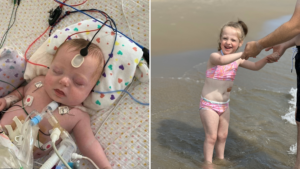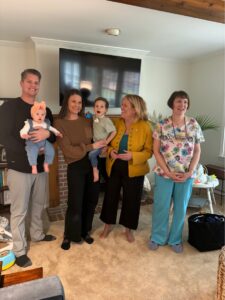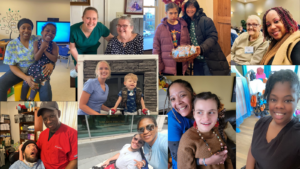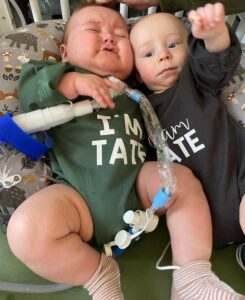ACSP Clients Jessie and Marie, and the impact their caregivers Indira and Marie make in their lives
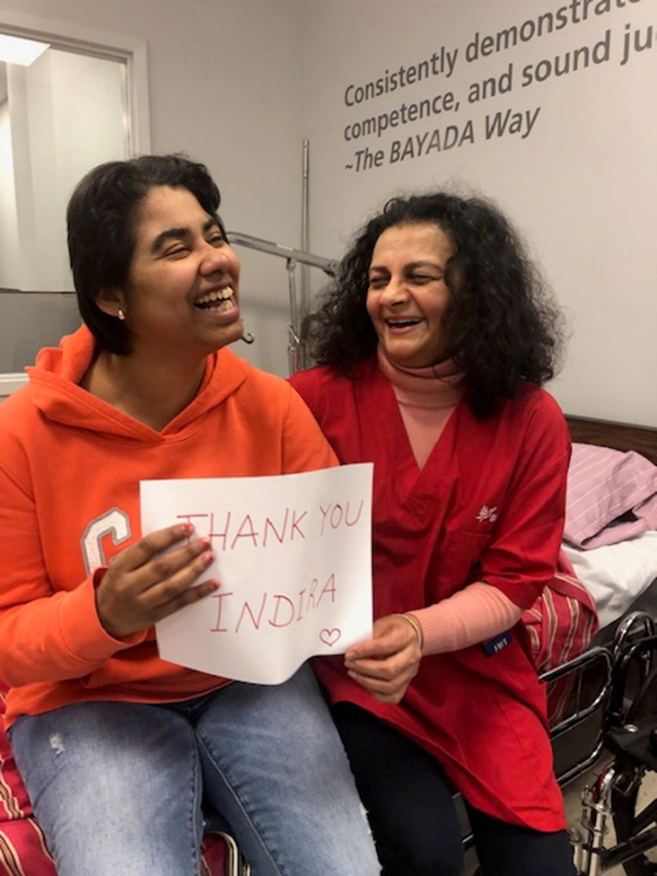
GAO and many other advocates are fighting for increased funding for New Jersey’s Personal Care Assistant (PCA) program. This program enables thousands of vulnerable New Jersey residents stay at home, and we are hoping that our advocacy efforts lead to fairer wages for caregivers like Indira and Michele.
Indira & Jessie
Indira is at Jessie’s home every morning at 5:00 without fail. After taking on Jessie’s case and learning that she spent most of her time in bed, it became Indira’s mission to consistently challenge her to get out of bed and get active. Now, every morning before dawn, Jessie starts her morning with a smile, anxiously waiting for Indira to arrive.
While helping Jessie, who is 31 and diagnosed with cerebral palsy, with her activities of daily living, Indira also incorporates games, crafts, dancing, and singing. After a few short months with her beloved caregiver, Jessie now has a newfound confidence in her physical abilities and communication and language skills. Indira has quickly ingrained herself as part of Jessie’s family, whose loved ones call Indira “a Godsend.”
Marie & Michele
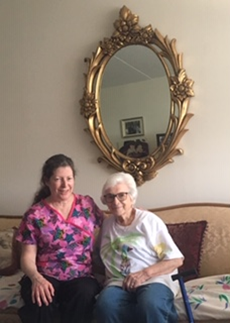
CHHA Michele has been with her client Marie since January of 2017, but you would think they have known each other forever. They share a special bond, and Marie even says that Michele is “like a daughter” to her. Marie lives alone, and if not for Michele’s visits, would be lonely and potential in danger. In addition to the personal care services that Michele provides to keep Marie safe and healthy, you see their bond shine when Michele frequently makes puzzles and quizzes to stimulate Marie’s mind—or as they like to call it, “using our noodles.”
Marie says that without Michele, she would not be fully able to take care of herself. But As soon as Marie arrives at Marie’s door, the time flies as Marie keeps her on her toes—both figuratively and literally. In addition to regularly stimulating Marie’s mind, Michele makes sure that Marie is safe and on balance as she moves around her apartment.
We need your help in supporting dedicated caregivers like Indira and Marie through advocacy. To find out ways you can get involved, email [email protected] today.
“Parents deserve to be parents, not skilled nurses, and more importantly, children deserve to be children—not patients.” Two moms share how PDN impacts their families’ lives
This year, our major focus in New Jersey is to fight for higher reimbursement rates for New Jersey’s Private Duty Nursing (PDN) program. One of the most impactful ways to influence legislators is to engage clients and families into advocacy through testimony, which is delivered by these clients to legislators who are in key positions to influence legislators. Below, find powerful excerpts from two moms who support a PDN increase on behalf of their children and their families.
Dana I. – Mother to BAYADA Client, Abi

“There is truly no way to explain on how much caring for a medically fragile child impacts a family. Every errand, every event, every move of your day becomes centered around their care. Abi has been authorized for skilled nursing care by our insurance company, yet she still has five or more unfilled shifts every week.
Lapses in nursing coverage put tremendous pressure on our entire family—we often have to miss work and stay home to provide for her care, putting strain on the family finances. Lost nursing hours also means the entire focus of our time becomes all about our medically-fragile child, and the balance between the other children becomes strained and we often miss beloved activities or events.
Abi is not a child that we can just hire a babysitter for. Her high level of care and constant need for monitoring makes it impossible to have any sense of normalcy without capable & consistent nursing support. There are simply not enough nurses in home care to cover all of the needs of my family and the needs of many, many others.
Institutionalized care is not the answer. My precious daughter brings many challenges to our home, but it would be heartbreaking to have to put her in an institution for lack of nursing support. So here I am prayerfully putting a name and a face to those of you who have the power to make a real difference in this area. Competitive wages would bring stability to her home care nursing and allow our family and families like us to stay together and thrive.” -Dana Insley, Abi’s mom
Emma K. – Mother to BAYADA client, Lili
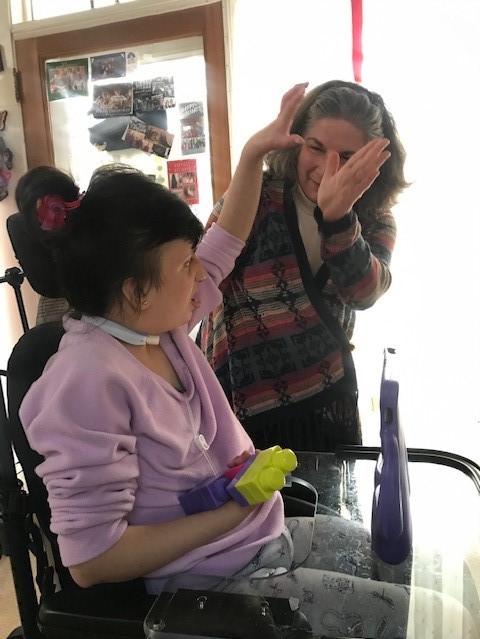
“While I count my blessings that we have the right nursing team in place, I often think of the families across the state that can’t fill their nursing shifts. It takes me back to the last time our scheduled nurse had a family emergency and there was no other nurse available to cover her shift. As a single mother of a medically-complex, ambulatory child with no family in the area, you can imagine how it plays out when there isn’t a nurse available for Lili: I have to call out of work myself and cancel any commitments I’ve made for the day. I can’t get the groceries that I was planning to pick up or even do a load of laundry since I can’t leave Lili alone for even a minute. And I have to again plan to do these things during the times I’m expecting to have a nurse to stay with Lili because I can’t get them done otherwise.
We as a society have developed a system of reliability for our communities: Teachers help children learn, police keep our streets safe, ER doctors save lives, and pharmacists fill our prescriptions. But we are failing in keeping home nursing readily available. Just as a prescription, Lili’s care is prescribed by her doctor and authorized by the state. But we cannot rely on its availability. I hope that our state decision makers prioritize home care, if solely for the fact that it keeps children like Liliana at home and keeps families together. Parents deserve to be parents, not skilled nurses, and more importantly, children deserve to be children—not patients.” -Emma K., Liliana’s mom
Dana and Emma exemplify the power of sharing your story. If you’d like to highlight the powerful story of your experience in a home care office, or the story of a client, their loved one, or a caregiver, contact [email protected].

